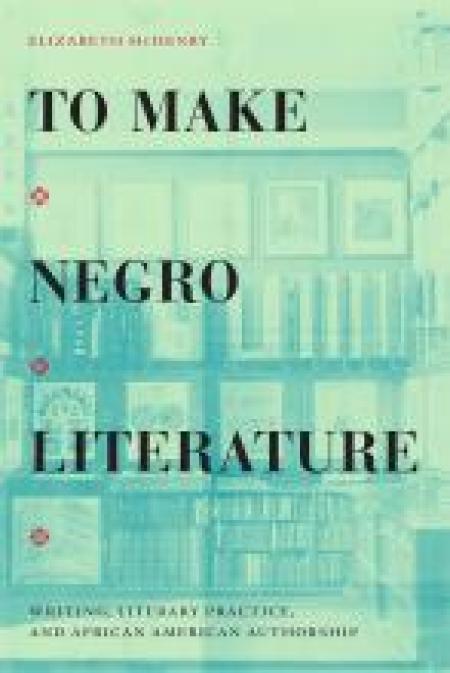
American Antiquarian Society
185 Salisbury Street
Worcester, MA 01609
United States
In To Make Negro Literature Elizabeth McHenry traces African American authorship in the decade following the 1896 legalization of segregation. She shifts critical focus from the published texts of acclaimed writers to unfamiliar practitioners whose works reflect the unsettledness of African American letters in this period. Analyzing literary projects that were unpublished, unsuccessful, or only partially achieved, McHenry recovers a hidden genealogy of Black literature as having emerged tentatively, laboriously, and unevenly. She locates this history in books sold by subscription, in lists and bibliographies of African American authors and books assembled at the turn of the century, in the act of ghostwriting, and in manuscripts submitted to publishers for consideration and the letters of introduction that accompanied them. By attending to these sites and prioritizing overlooked archives, McHenry reveals a radically different literary landscape, revising concepts of Black authorship and offering a fresh account of the development of “Negro literature” focused on the never published, the barely read, and the unconventional.

Elizabeth McHenry is Professor and Chair of the English Department at New York University. Her research and teaching are focused on African American literature and the various histories of Black print culture, particularly in the nineteenth and very early twentieth centuries. She is the author of Forgotten Readers: Recovering the Lost History of African American Literary Societies (Duke 2002), which explores the long history of African Americans as readers in the context of their organized literary practices. Her most recent book, To Make Negro Literature: Writing, Literary Practice, and African American Authorship (Duke, 2021), returns again to the archives of Black literature to examine a variety of projects and conditions of authorship that have been dismissed or gone largely unnoticed in traditional accounts of African American literary history. She is currently at work on a project that aims to uncover the work of Black job printers in the production and distribution of African American literature and the extension of Black literary culture.